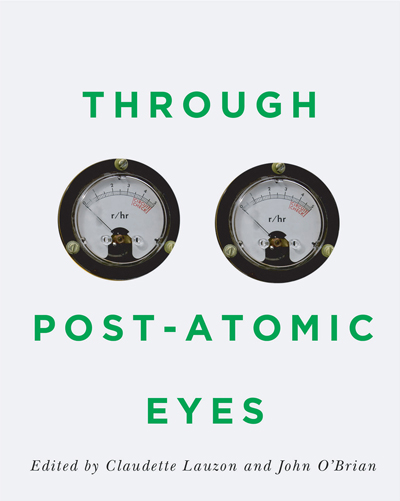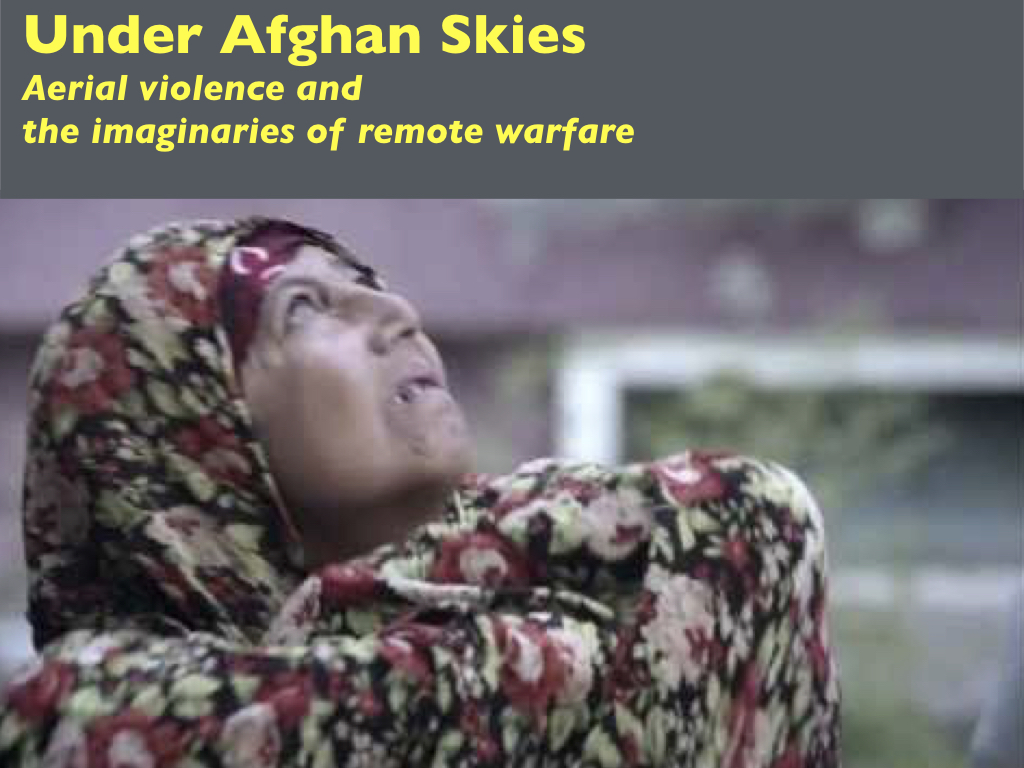
I’m taking part in the Toronto Hearing of the Airspace Tribunal on 1 November. I’ve written about the project before – see my post here – but here are the basic details:
Online (via Zoom) All times are Eastern Standard Time
The Toronto hearing of the Airspace Tribunal is co-presented by The Power Plant and the Master of Visual Studies program at the Daniels Faculty, University of Toronto. Speakers from a broad range of expertise, disciplines and lived experience – including Climate Change, Human Rights, Artificial Intelligence, Geopolitics, Contemporary Warfare, Biopolitics, Psychology and Forced Migration – will consider whether we need increased protection from threats from above through the recognition of this proposed new human right.
The hearing will take place over three 2-hour online panel discussions followed by a one 1-hour online summative session. The Power Plant’s Director, Gaëtane Verna, will be the Chair, introducing each session and all speakers. Counsel to the Tribunal, Kirsty Brimelow QC of Doughty Street Chambers (London, UK), will pose questions to the Experts. Members of the audience – our judges – will also be able to ask questions.
The Airspace Tribunal invites representations from experts across a broad range of disciplines and lived experience to consider the case for and against the recognition of a new human right to protect the freedom to exist without physical or psychological threat from above.
You can find out more (and register: it’s free) here.
There are four sessions – you can access the full program via the link above – but here is the panel for the first one (1400 to 1600 EST):
Shona Illingworth is an artist whose video and sound installations and research-led practice investigate memory, cultural erasure and structures of power and their impact on how the future is imagined in situations of social tension and conflict. She is Reader in Arts, University of Kent
Nick Grief was a member of the legal team which represented the Marshall Islands in the International Court of Justice in cases against India, Pakistan and the UK concerning the obligation to negotiate in good faith towards nuclear disarmament. He is Emeritus Professor of Law, University of Kent and practises at the Bar from Doughty Street Chambers, London, UK
Derek Gregory is Peter Wall Distinguished Professor and Professor of Geography, University of British Columbia at Vancouver, Canada. He is completing a new book, Reach from the Sky, which is is a genealogy and geography of aerial violence; his current research concerns medical care and casualty evacuation in war zones, 1914 to the present.
Gbenga Oduntan, Reader in International Commercial Law, Kent Law School, University of Kent
And for the second (on 4 November):
Jairus Grove is Associate Professor, Department of Political Science, University of Hawaii at Manoa, USA.His recent book Savage Ecology: War and Geopolitics at the End of the World develops an ecological theory of geopolitics that argues that contemporary global crises are better understood when considered within the larger history of international politics.
Jack Penashue, Director of Social Health for Sheshatshiu Innu First Nations, Sheshatshiu, Newfoundland & Labrador, Canada
Gabriele Schwab, Distinguished Professor, Comparative Literature with joint faculty appointments in Anthropology, English, European Languages and Studies, and Gender and Sexuality Studies; School of Humanities, University of California — Irvine, USA
And for the third (on 7 November):
Anthony Downey is Professor of Visual Culture in the Middle East and North Africa (Birmingham City University). His current research projects explore digital media, knowledge production, and the relationship between cultural practices and human rights. Upcoming and recent publications include Unbearable States: Digital Media and Cultural Activism (forthcoming, 2021) and Critique in Practice (Sternberg Press, 2020). He is the series editor for Research/Practice (Sternberg Press, 2019–ongoing) and sits on the editorial boards of Third Text and Digital War, respectively
Kwame McKenzie, CEO of the Wellesley Institute; Director of Health Equity, Centre for Addiction and Mental Health; and, Professor, Department of Psychiatry, University of Toronto, Canada
Renata Salecl is a philosopher and sociologist whose work has included radical re-evaluation of notions of liberal theories of democracy to offer new approaches to human rights and feminism. She is professor at the School of Law at Birkbeck College, University of London and senior researcher at the Institute of Criminology at the Faculty of Law in Ljubljana, Slovenia. Her recent book A Passion for Ignorance is an original and provocative exploration of our capacity to ignore what is inconvenient or traumatic.
The fourth session is a plenary, closing session. The Airspace Tribunal hearing in Toronto will be recorded and transcribed. Documentation will be incorporated in a special issue of the Journal of Digital War and contribute to Illingworth’s Fall 2021 exhibition at The Power Plant. It will also contribute to the drafting history, helping to build and refine the case for the proposed new human right to be submitted to the United Nations and other bodies.








